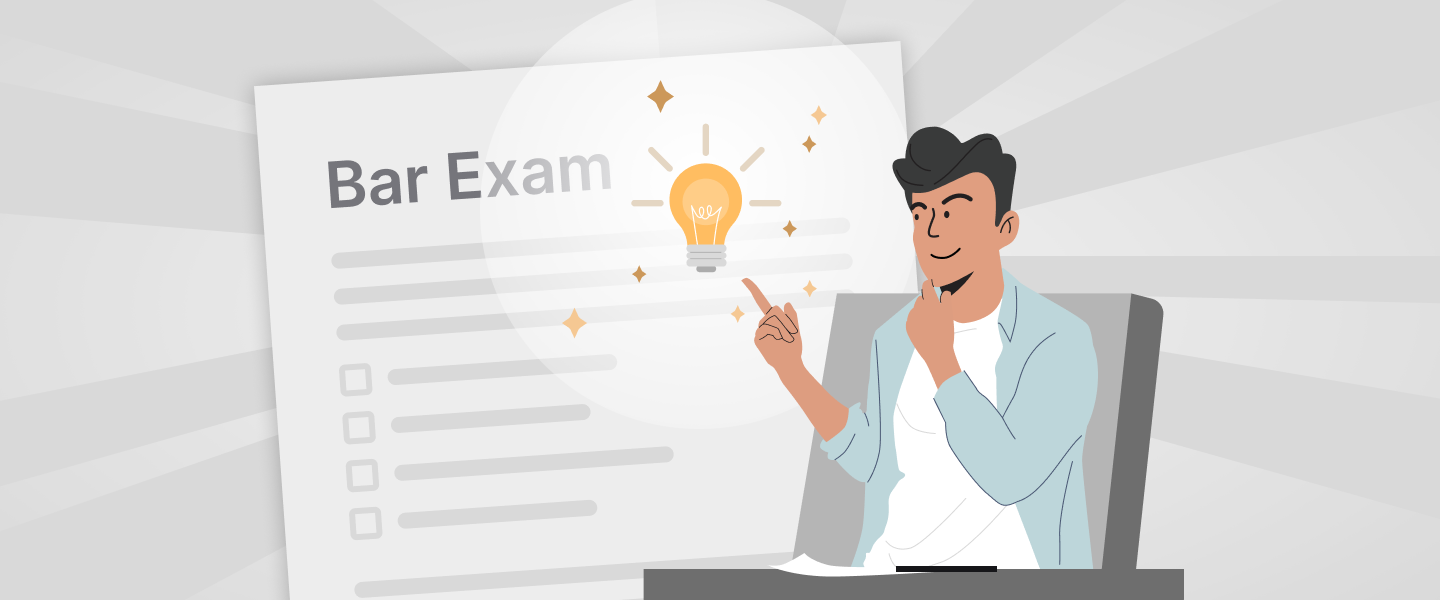Table of Contents
Bar Exam Success
Crim Pro Quick Tip: When Are Miranda Warnings Required?

You have the right to remain silent. Anything you say can be used against you in a court of law. You have the right to an attorney prior to and during questioning. If you cannot afford an attorney, one will be appointed to represent you free of charge.
This warning, derived from the landmark Supreme Court case Miranda v. Arizona, is so famous that most people are familiar with it even if they have no experience in the criminal justice system.
But when must police provide a suspect Miranda rights? The simple answer can be stated in 4 words: prior to custodial interrogation. But those 2 concepts—custody and interrogation—are complex and nuanced.
This warning, derived from the landmark Supreme Court case Miranda v. Arizona, is so famous that most people are familiar with it even if they have no experience in the criminal justice system.
But when must police provide a suspect Miranda rights? The simple answer can be stated in 4 words: prior to custodial interrogation. But those 2 concepts—custody and interrogation—are complex and nuanced.
Custody
Let’s look at custody first. Miranda warnings are required only if a defendant is in custody. This means that the defendant has been either formally arrested or is facing a similar restraint on his liberty. The key question is whether a reasonable person would feel free to end the interrogation and leave. If not, the defendant is in custody.
However, there are certain circumstances that courts have held are not custodial for Miranda purposes, even if the defendant is not free to leave. The most common example is the routine traffic stop. Such stops are generally brief, public, and don’t carry the risk of compulsion found in a station house interrogation. Similarly, questioning during a Terry stop doesn’t require Miranda warnings. Nor does questioning an incarcerated prisoner about a different offense. Finally, even a station house interrogation doesn’t require Miranda if the defendant has come in voluntarily for an interview.
But keep in mind, any of the above situations could be custodial if additional facts exist that would cause a reasonable person to believe that he wasn’t free to leave.
However, there are certain circumstances that courts have held are not custodial for Miranda purposes, even if the defendant is not free to leave. The most common example is the routine traffic stop. Such stops are generally brief, public, and don’t carry the risk of compulsion found in a station house interrogation. Similarly, questioning during a Terry stop doesn’t require Miranda warnings. Nor does questioning an incarcerated prisoner about a different offense. Finally, even a station house interrogation doesn’t require Miranda if the defendant has come in voluntarily for an interview.
But keep in mind, any of the above situations could be custodial if additional facts exist that would cause a reasonable person to believe that he wasn’t free to leave.
Interrogation
Now, let’s consider interrogation. For Miranda purposes, interrogation means questioning or its functional equivalent. Most of the time, it’s easy to determine whether officers are interrogating a suspect. But there are some nuances. For example, officers may discuss details of the crime in a suspect’s presence. In such a case, a court considers whether a reasonable officer would have known that her statement was likely to elicit an incriminating response from the suspect. If so, it’s considered interrogation.
Exceptions
Are there situations in which Miranda isn’t required, even for custodial interrogation? Yes. First, the routine-booking exception permits officers to ask standard booking questions, such as questions regarding the defendant’s date of birth, address, height and weight, etc. Second, under the public-safety exception, officers don’t have to provide Miranda warnings before asking a suspect about the location of a weapon that poses an imminent threat. Third, Miranda applies only if a defendant subjectively believes that he’s being interrogated by law enforcement. Therefore, if the police use an undercover officer to pose as a cellmate and question a suspect in his jail cell, Miranda warnings aren’t required. Finally, remember that Miranda ultimately derives from the Fifth Amendment, which covers only testimonial communications. So police don’t need to provide Miranda warnings before making a suspect stand in a lineup, give a blood sample, or even recite a phrase for the purpose of making a voice identification.
Let’s close with one nonexception to Miranda. A defendant’s actual knowledge isn’t an exception. Police must provide Miranda warnings before custodial interrogation even if the defendant already knows his rights, such as through prior arrests.
Do you want to be 100% prepared for the bar exam? Quimbee Bar Review+ features real, licensed questions from past bar exams, essay grading by real attorneys, and beautifully designed video lessons. Elect full-time study during the 11 weeks leading up to the exam or part-time study over a longer period. Want to learn more about the unique features Quimbee Bar Review+ uses to help prepare you for the bar exam? Book a 30-minute tour of the course for free.
Let’s close with one nonexception to Miranda. A defendant’s actual knowledge isn’t an exception. Police must provide Miranda warnings before custodial interrogation even if the defendant already knows his rights, such as through prior arrests.
Do you want to be 100% prepared for the bar exam? Quimbee Bar Review+ features real, licensed questions from past bar exams, essay grading by real attorneys, and beautifully designed video lessons. Elect full-time study during the 11 weeks leading up to the exam or part-time study over a longer period. Want to learn more about the unique features Quimbee Bar Review+ uses to help prepare you for the bar exam? Book a 30-minute tour of the course for free.







